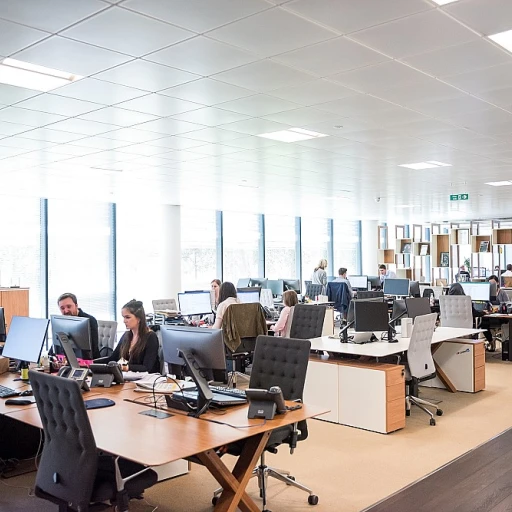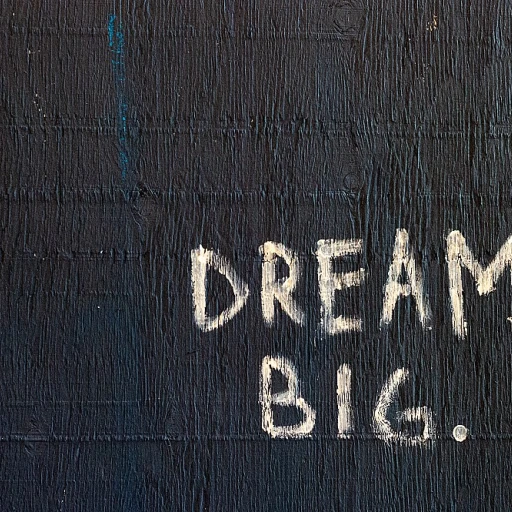
Understanding the value of a human resources newsletter for job seekers
Why HR Newsletters Matter for Job Seekers
For anyone aiming to land a role in human resources, staying updated is not just helpful—it’s essential. A well-curated HR newsletter can be a game changer, delivering the latest news, best practices, and actionable insights directly to your email. Whether you’re actively searching for a new position or simply want to keep your knowledge sharp, subscribing to the right resources newsletter helps you stay ahead of the curve in a fast-evolving field.
- Timely updates: Monthly or weekly newsletters keep you informed about changes in employee management, talent management, and people management trends.
- Curated content: The best newsletters select relevant topics, from employee engagement strategies to company culture shifts, so you don’t have to sift through endless articles.
- Professional growth: Regularly reading about HR best practices, employee newsletter ideas, and business leaders’ insights can help you prepare for interviews and improve your understanding of what companies are looking for in HR professionals.
Many HR newsletters also offer practical resources, such as interview tips, resume advice, and case studies from real employees. For example, if you’re looking to enhance your resume for HR job interviews, you might find value in this guide on crafting an effective HR resume. These resources are often tailored to the monthly or weekly frequency, ensuring you receive the most up-to-date information relevant to the current hiring landscape.
Subscribing to a quality HR newsletter is more than just receiving news—it’s about joining a community of professionals and business leaders who share your passion for people and company success. As you explore the different types of newsletters available, consider how their content, frequency (weekly, monthly), and focus areas align with your career goals and interests. The right employee newsletter can become a trusted companion on your journey to becoming a standout HR professional.
Key topics covered in a quality human resources newsletter
What You’ll Find in a Top Human Resources Newsletter
A quality human resources newsletter delivers more than just company news. For job seekers and professionals, these newsletters are a valuable source of up-to-date information and practical resources. Here’s what you can expect from the best newsletters in the HR field:- Employee Engagement Strategies – Discover proven ways to boost employee engagement and foster a positive work environment. Many newsletters share best practices and real-world examples that help both employees and management teams.
- Talent Management Insights – Stay informed about the latest trends in talent management, including recruitment, onboarding, and retention. This is especially useful for people looking to understand what companies are seeking in new hires.
- People Management Tips – Learn about effective people management, from communication techniques to conflict resolution. These resources are helpful for both HR professionals and those aspiring to join the field.
- Monthly and Weekly Updates – Whether you prefer a monthly newsletter or a frequency weekly update, you’ll find content tailored to your needs. Many newsletters offer a choice of how often you receive their insights by email.
- Employee Newsletter Ideas – Get inspiration for your own employee newsletter, with content suggestions and creative approaches that keep your team informed and motivated.
- Best Practices and Compliance – Stay up to date with the latest best practices in human resources, including compliance updates and legal changes that impact employees and employers alike.
- Seasonal and Timely Topics – Look for newsletters that cover timely issues, such as changes in the workplace during october september, november october, december november, or even april march. These updates help you stay prepared for what’s ahead.
Why These Topics Matter for Job Seekers
For anyone preparing for HR job interviews, understanding these topics can make a real difference. By subscribing to the best newsletters, you’ll gain insights into what business leaders and HR professionals are focusing on right now. This knowledge can help you stand out in interviews and show that you’re up to date with current HR trends. If you’re curious about what to expect in HR job interviews at specific companies, you might find this guide on career opportunities at American Cyber Systems especially helpful. It offers a closer look at the interview process and what HR teams are looking for in candidates. Staying informed through a resources newsletter is a smart move for anyone serious about a career in human resources. Whether you’re a job seeker, a current employee, or part of a management team, these newsletters keep you connected to the latest developments in the field.How newsletters highlight current HR interview trends
Spotting Emerging Interview Practices in HR Newsletters
Staying ahead in the HR job market means understanding how interview trends shift throughout the year. A well-curated human resources newsletter is one of the best ways to keep up with these changes. Whether you subscribe to a weekly newsletter or prefer a monthly roundup, these resources deliver timely news and insights directly to your email, helping you prepare for what’s next in HR interviews.
- Frequency matters: Many professionals choose a frequency weekly or monthly newsletter to stay updated without feeling overwhelmed. This regular flow of content ensures you’re always aware of the latest interview techniques and expectations from companies and business leaders.
- Seasonal updates: Newsletters often highlight trends that emerge during key hiring periods, such as February January, March February, April March, September October, November October, and December November. These updates can include changes in talent management strategies, new employee engagement practices, or shifts in people management approaches.
- Expert analysis: The best newsletters feature commentary from HR professionals and people management experts, offering practical advice on how to handle new interview formats, assessment tools, and company expectations. This is especially valuable for employees and job seekers aiming to stand out in a competitive market.
For example, a resources newsletter might cover how companies are using virtual interviews more frequently, or how employee engagement is assessed during the hiring process. These insights help you tailor your preparation and responses to what employers are currently seeking.
To dive deeper into how you can leverage these trends for your own job search, check out this guide on navigating HR job interviews with up-to-date strategies. Staying informed through the best newsletters is a smart move for anyone serious about a career in human resources.
Practical tips and resources shared through newsletters
Actionable Guidance Delivered to Your Inbox
One of the most valuable aspects of a human resources newsletter is its ability to provide practical tips and resources that job seekers can immediately use. Whether you subscribe to a weekly newsletter or prefer a monthly update, these resources newsletters are designed to support professionals at every stage of their HR job search and career development.
- Interview Preparation: Newsletters often share best practices for preparing for HR interviews, including sample questions, advice on answering behavioral queries, and guidance on showcasing your experience in people management and talent management.
- Employee Engagement Strategies: Many employee newsletters feature insights on how to demonstrate your understanding of employee engagement, a key topic for HR professionals and business leaders alike.
- Resume and Application Tips: From optimizing your resume for human resource roles to crafting compelling cover letters, the best newsletters offer step-by-step resources to help you stand out to hiring teams.
- Updates on HR Trends: Regular news updates keep you informed about what companies are looking for in candidates, especially during peak hiring months like October, November, December, and March. This helps you tailor your approach to current industry expectations.
- Templates and Checklists: Many resources newsletters include downloadable content such as interview checklists, employee onboarding templates, and monthly newsletter ideas for those involved in internal communications.
By subscribing to a well-curated HR newsletter, you gain access to a steady stream of actionable content. These emails are crafted by experienced professionals who understand the challenges faced by job seekers and employees in the human resources field. Whether you are looking for weekly newsletter updates or prefer a monthly newsletter frequency, the right content can make a significant difference in your job search and ongoing professional development.
For those managing teams or aspiring to leadership roles, these newsletters also share best practices in people management and employee engagement, ensuring you stay ahead in your company and contribute positively to your team. The best newsletters not only inform but empower you to take meaningful steps in your HR career journey.
Success stories and real-life experiences from newsletter readers
Real Impact: Stories from the HR Community
Monthly and weekly newsletters are more than just a collection of news and best practices—they are a source of inspiration for many professionals. Readers often share how a single piece of content or a practical tip helped them navigate a challenging HR interview or improve employee engagement in their company. These real-life experiences highlight the value of subscribing to a quality resources newsletter.- One employee described how a weekly newsletter’s section on talent management gave them the confidence to discuss people management strategies during their interview, leading to a job offer.
- Another professional mentioned that the monthly newsletter ideas on employee engagement helped them propose new initiatives to their team, which were later adopted by management.
- Business leaders have shared how curated content from the best newsletters kept them informed about the latest HR trends from February January to December November, supporting their ongoing learning and development.
Choosing the right human resources newsletter for your needs
What to Look for When Selecting Your HR Newsletter
Choosing the right human resources newsletter can make a real difference in your job search and professional growth. With so many options available, it’s important to focus on what matters most for your needs as a job seeker or HR professional.
- Content Relevance: Make sure the newsletter covers topics that match your interests, such as employee engagement, people management, talent management, and best practices in HR. The best newsletters offer practical resources and news that help you stay ahead in your field.
- Frequency and Format: Decide if you prefer a weekly newsletter, monthly newsletter, or even a daily update. Some people like a quick weekly email with highlights, while others want in-depth monthly resources. Check if the frequency fits your schedule and learning style.
- Expertise and Credibility: Look for newsletters produced by experienced HR professionals, business leaders, or reputable companies. Trustworthy sources ensure you get accurate and up-to-date information on human resources trends and employee management.
- Practical Value: The best HR newsletters provide actionable tips, templates, and real-life examples that you can use at work. Whether it’s advice on employee newsletter ideas or strategies for team management, practical content is key.
- Community and Engagement: Some newsletters encourage feedback, share reader success stories, or offer opportunities to connect with other professionals. This can boost your learning and help you feel part of a wider HR community.
- Special Editions and Timely Updates: Pay attention to newsletters that offer special editions during key periods, like October September, November October, December November, or February January. These often include insights on seasonal HR trends and company updates.
Comparing Newsletter Options
| Newsletter Feature | Why It Matters |
|---|---|
| Frequency (weekly, monthly) | Matches your preferred pace for staying informed |
| Content Focus | Ensures you get relevant HR news, best practices, and employee resources |
| Expert Contributors | Brings authority and trust to the information shared |
| Practical Tools | Provides templates, checklists, and actionable advice for your work |
| Reader Engagement | Opportunities to share experiences and learn from others |
Before you subscribe, review a few recent editions, check the topics covered, and see if the newsletter helps you stay informed about employee management, company culture, and the latest HR news. The right resources newsletter will support your career goals and keep you connected with the best practices in the industry.













